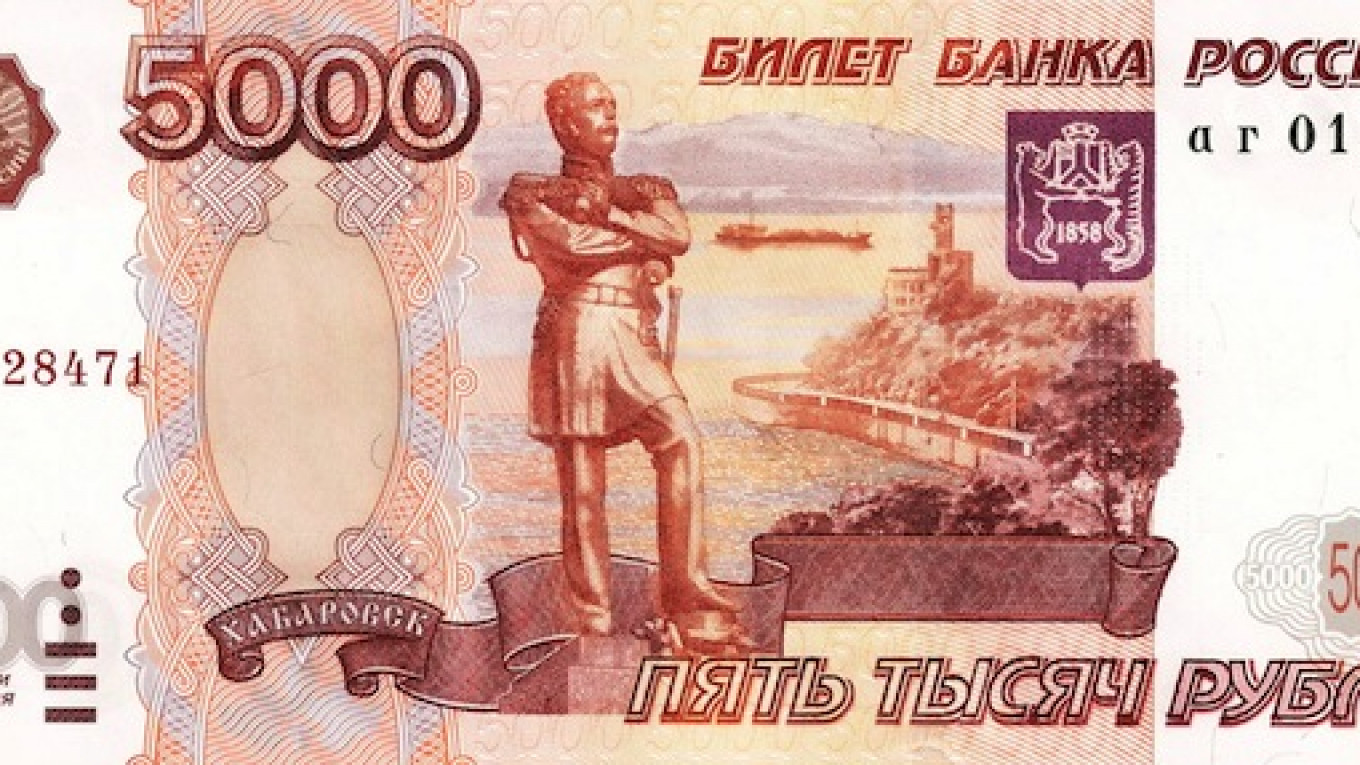The ruble plunged on Friday, falling past 50 versus the U.S. dollar after OPEC's refusal to implement production cuts caused oil prices to nosedive.
The Russian currency reached 50.4 against the dollar in after-hours trading, extending a dramatic week-long tumble that raises the possibility of intervention by the Central Bank to steady the market. Against the euro the ruble ended the day at 62.85.
The ruble, which is at its lowest level since the currency was redenominated in 1998, has lost over 11 percent against the dollar since Monday, one of the worst performing weeks on record.
The Organization of Petroleum Exporting Countries (OPEC) said Thursday that it would not curb output to shore up prices, prompting oil to shed over $5 in a day to trade at four-year lows.
The price of Brent crude, the international oil benchmark, plummeted below $70 a barrel during late trading on Friday, despite stabilizing earlier in the day at about $73 a barrel.
Russian President Vladimir Putin said Friday that he saw nothing surprising in OPEC's decision, nor the subsequent oil price fall.
“It's an inevitable reaction,” Putin said, according to a transcript on the Kremlin's website. He added that he did not expect oil markets to balance themselves until the middle of next year.
Russia depends for about half its budget revenues on energy exports, so the falling price of crude has an immediate knock-on effect on the Russian currency and stocks.
The ruble has lost almost 35 percent of its value against the dollar this year in the face of weakening oil and Western sanctions on Moscow over the Ukraine crisis.
The Central Bank implemented a free floating currency earlier this month after spending over $70 billion to defend the ruble since January, but has said that it retains the right to sell foreign currency reserves on the market if there is a threat to financial stability.
“Perhaps given the dreadful geopolitical setting the strategic importance of the Central Bank's currency reserves has increased and they want to conserve these at all costs,” Timothy Ash, an emerging markets analyst at Standard Bank, said in a note Friday.
“This may well suggest that the ruble will continue to take the strain as long as oil prices remain under downside pressure.”
The Central Bank said in a statement Friday that it would limit ruble liquidity via its foreign-currency swaps in an effort to bring stability to the currency market.
“The key is the mindset of the Central Bank, and what would be required for it to intervene,” chief currency strategist at Sberbank CIB Tom Levinson said in a note Friday. “Collapsing oil prices justify the ruble's weakness. However, it is the pace of ruble's declines and the public's behavior that we think will govern its decision.”
The dollar-denominated RTS index, which is particularly badly hit by ruble weakness, sank to five-year lows of 969 points in Friday morning trading.?
Correction: An earlier version of this article said the ruble's fall past 50 to the U.S. dollar was unprecedented. In fact, this exchange rate is only unprecedented in the period after the ruble's redenomination in 1998.
Contact the author at h.amos@imedia.ru
A Message from The Moscow Times:
Dear readers,
We are facing unprecedented challenges. Russia's Prosecutor General's Office has designated The Moscow Times as an "undesirable" organization, criminalizing our work and putting our staff at risk of prosecution. This follows our earlier unjust labeling as a "foreign agent."
These actions are direct attempts to silence independent journalism in Russia. The authorities claim our work "discredits the decisions of the Russian leadership." We see things differently: we strive to provide accurate, unbiased reporting on Russia.
We, the journalists of The Moscow Times, refuse to be silenced. But to continue our work, we need your help.
Your support, no matter how small, makes a world of difference. If you can, please support us monthly starting from just $2. It's quick to set up, and every contribution makes a significant impact.
By supporting The Moscow Times, you're defending open, independent journalism in the face of repression. Thank you for standing with us.
Remind me later.


